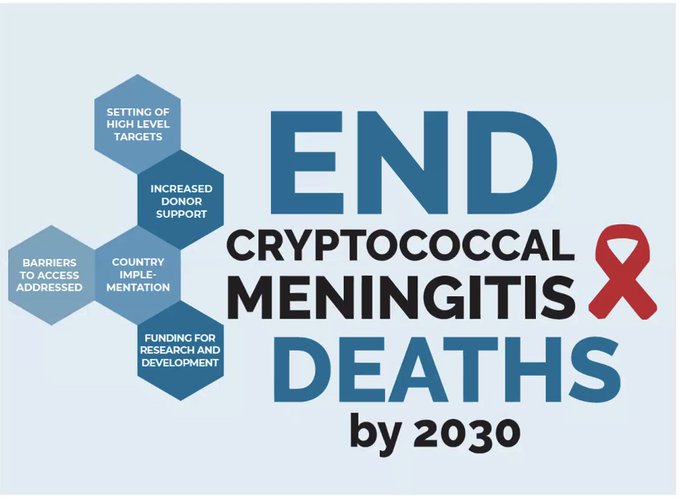|
Getting your Trinity Audio player ready...
|
MSF, others launch strategic framework to end deaths from HIV-related cryptococcal meningitis by 2030
In advance of an upcoming United Nations High-Level Meeting on HIV/AIDS, Doctors Without Borders/Médecins Sans Frontières (MSF) and its global partners released a strategic framework outlining the actions countries need to take to end deaths from cryptococcal meningitis (CM) by 2030. MSF is also calling on Joint United Nations Programme on HIV/AIDS (UNAIDS) and the World Health Organization (WHO) to commit to ambitious mortality reduction goals. The deaths of tens of thousands of people from CM—a life-threatening HIV-related brain infection—could be averted every year if access to existing diagnostic tests and medicines for prevention and treatment of this disease were widely available, said the international medical humanitarian organization.
“Undiagnosed and untreated CM is always fatal, but if diagnosed early and optimally treated, over 70 percent survive,” said Professor David Denning, chief executive of the Global Action Fund for Fungal Infections (GAFFI) and of the University of Manchester. “The problem is that lifesaving tools and treatments are not accessible where they are most needed.”
CM is responsible for an estimated 181,000 annual deaths—mostly in Africa—yet the disease is neglected. The infection predominantly affects people living with HIV whose immune systems are severely suppressed, which leaves them vulnerable to deadly HIV-related opportunistic infections.
“There is a global strategy to end tuberculosis but no strategy to end CM or other major causes of death of people living with HIV,” said Dr. Gilles van Cutsem, an HIV/TB adviser with MSF in South Africa. “With this initiative, we hope to rectify this.”
Three drugs—flucytosine, amphotericin B, and liposomal amphotericin B—are required for effective treatment of CM, yet access to these drugs remains limited, partly due to which countries pharmaceutical corporations have chosen to register them. Treatment with a drug called fluconazole alone—the drug most commonly used in low-income settings—results in around 20 percent survival rates, compared to using flucytosine, which is recommended by WHO and could improve survival by approximately 70 percent. However, flucytosine remains largely inaccessible throughout Africa, where the majority of CM deaths occur.
According to Dr. Amir Shroufi, a medical advisor with the Centers for Disease Control (CDC) Foundation, widespread access to flucytosine would save the greatest number of lives in the short term. “The drug is off-patent, affordable, and recommended for use by the WHO, yet remains unregistered and largely inaccessible throughout Africa. This needs to change urgently,” he said.
A flucytosine clinical access program established in South Africa in 2018 by MSF with the support of the National Department of Health gives public sector tertiary hospitals access to the drug. Between July 2018 and March 2020, a total of 634 patients with CM at 21 South African hospitals received flucytosine. Approximately 76 percent survived, according to preliminary data of the National Institute for Communicable Diseases.
“We have seen better outcomes with the limited access to flucytosine, but this is only a small program, and it urgently needs to be made more widely available on a more equitable basis to see a real benefit,” said Dr. John Black, an infectious diseases physician at Livingstone Hospital in South Africa’s Eastern Cape Province.
The coalition partners believe that deaths from CM can be halved by 2025, and virtually ended by 2030, if this strategic framework is supported. The neglect of this leading killer of people with HIV has gone on for too long; it is time to give this disease the attention it deserves and end all deaths from it without delay.
The strategic framework was created by MSF in collaboration with the CDC Foundation, Atlanta; Global Action Fund for Fungal Infections, Geneva; Centre for Global Health, St George’s University of London; National Institute for Communicable Diseases and University of the Witwatersrand, Johannesburg; International Treatment Preparedness Coalition, Johannesburg; Division of Infectious Diseases and International Medicine, University of Minnesota, Minneapolis; Drugs for Neglected Diseases Initiative, Geneva; Botswana Harvard AIDS Institute Partnership, Gaborone; Clinton Health Access Initiative, Washington; UNITAID, Geneva; Project ECHO, University of New Mexico, Albuquerque; and the London School of Hygiene & Tropical Medicine.






